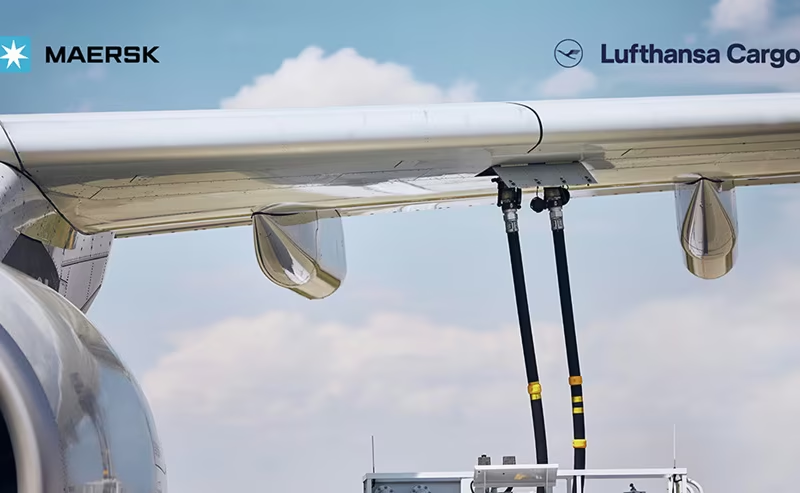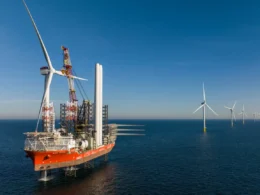Lufthansa Cargo and A.P. Moller – Maersk (Maersk) have signed a pivotal agreement to advance the decarbonisation of airfreight using Sustainable Aviation Fuel (SAF). Under the partnership, Lufthansa Cargo will utilise 400 metric tonnes of SAF on behalf of Maersk during the remainder of 2024, coinciding with peak cargo volumes at year-end. This initiative is expected to reduce CO₂ emissions by at least 1,200 metric tonnes.
“Cutting greenhouse gas emissions from airfreight is one of the most challenging tasks within the decarbonisation of global logistics and supply chains. This is why we are excited to partner with Lufthansa Cargo in this important task. As one of the globally largest logistics companies, Maersk aims to reach net zero greenhouse gas emissions by 2040 across all modes of transport as well as other business areas like warehousing and container terminals. The uptake and availability of SAF in the aviation industry is still limited. Our agreement with Lufthansa Cargo enables Maersk to contribute to an increase in the uptake,” said Morten Bo Christiansen, Head of Energy Transition at A.P. Moller – Maersk.
Ashwin Bhat, CEO of Lufthansa Cargo said, “SAF is a key technological enabler for more sustainable flying and essential for the energy transition in aviation. With Maersk we are jointly making a valuable contribution with the new agreement. At the same time, more sustainable flying also requires major efforts for a modern fleet and increased efficiency in flight operations. It is only through this interplay that change can be achieved sustainably.”
SAF, produced from biogenic residues like used cooking oil via the HEFA (Hydroprocessed Esters & Fatty Acids) process, reduces CO₂ emissions by approximately 80% over its lifecycle compared to conventional fossil kerosene. As a “drop-in” fuel, it integrates seamlessly into existing aviation infrastructure without requiring modifications. Lufthansa Cargo sources SAF through the Lufthansa Group, which has been offering customers sustainable freight transport options since 2021.
Maersk will allocate the emission reductions achieved through this SAF initiative to one of its European airfreight customers under its ECO Delivery Air product, part of a suite of services designed to reduce greenhouse gas emissions across transport modes. Maersk is also the first company to have its net zero targets validated by the Science-Based Targets initiative (SBTi) under maritime guidance.















